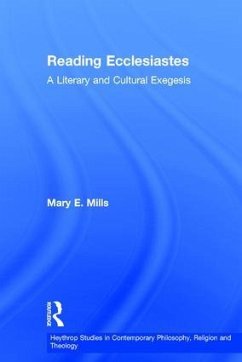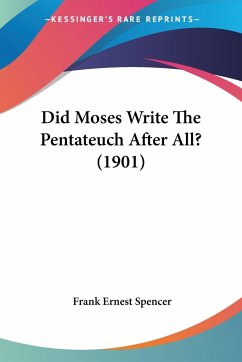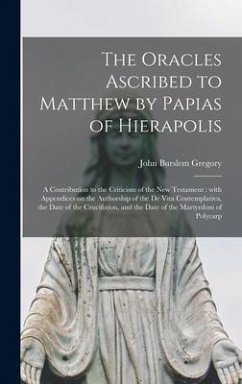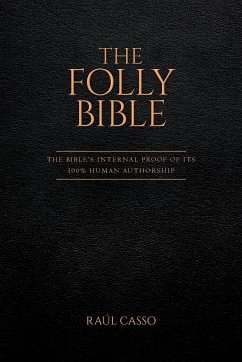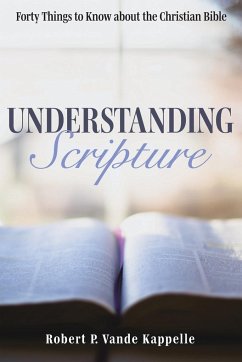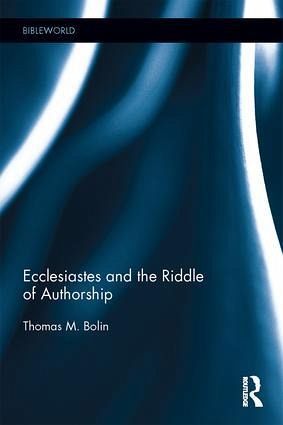
Ecclesiastes and the Riddle of Authorship
Versandkostenfrei!
Versandfertig in 1-2 Wochen
172,99 €
inkl. MwSt.
Weitere Ausgaben:

PAYBACK Punkte
86 °P sammeln!
This book examines the long-held scholarly assumptions that the Book of Ecclesiastes represents a heterodox or otherwise "minority" voice in the Hebrew Bible. Such a conclusion is based on certain theological assumptions of modern exegetes about what constitutes "orthodox" biblical teaching on the relationship between the human and the divine. An exposition of Ecclesiastes which draws upon texts throughout the Hebrew Bible and ancient Near-Eastern and Greco-Roman wisdom will show that, rather than see Qoheleth as a brilliant realist, a disillusioned pessimist or some other form of counter-cultural intellectual, he is instead comfortably at home in a speculative intellectual tradition that is ubiquitous in the biblical and classical worlds.
In Ecclesiastes, the authorial voice of Qohelet presents an identity that has challenged readers for centuries. This book offers a reception history of the different ways readers have constructed Qohelet as an author. Previous reception histories of Ecclesiastes group readings into "premodern" and "critical," or separate Jewish from Christian readings. In deliberate contrast, this analysis arranges readings thematically according to the interpretive potential inherent in the text, a method of biblical reception history articulated by Brennan Breed. Doing so erases the artificial distinctions between so-called scholarly and confessional readings and highlights the fact that many modern academic readings of the authorship of Ecclesiastes travel in well-worn interpretive paths that long predate the rise of critical scholarship. Thus this book offers a reminder that, while critical biblical scholarship is an essential part of the interpretive task, academic readings are themselves indebted to the Bible's reception history and a part of it.






